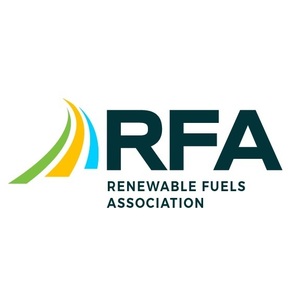RFA urges SAF Interagency Working Group to use a 30-year time period for LUC calculations

April 2, 2024
BY Erin Voegele
The Renewable Fuels association is urging federal officials to use a 30-year time frame to account for land use change (LUC) emissions as they work to complete the upcoming 40BSAF-GREET model, which will be used to calculate emissions reductions for the sustainable aviation fuel (SAF) tax credit.
The Sustainable Aviation Fuel Interagency Working Group is a coalition of experts representing the USDA, U.S. EPA, U.S. Department of Energy and U.S. Department of Transportation’s Federal Aviation Administration that was formed last year to create the updated 40BSAF-GREET model, which is expected to incorporate new data and science, including new modeling of key feedstocks and processes used in aviation fuel.
The working group in December 2023 set a self-imposed deadline to issue the 40BSAF-GREET model by March 1. Agriculture Secretary Tom Vilsack on that date announced release of the model would be delayed by “weeks, not months,” citing the need to get calculations for climate-smart agriculture right.
Advertisement
In a letter sent to the working group on April 1, the RFA outlines the important of ensuring the 40BSAF-GREET model’s time period for greenhouse gas (GHG) emissions accounting is consistent with methods that have already been determined by the U.S. Treasury to satisfy the criteria of Section 2011(o)(1)(H) of the Clean Air Act. The RFA is specifically urging the working group to use a 30-year time period for emission accounting, which is the same time period that is used in Renewable Fuel Standard regulations.
“Using a different time period (e.g., 25 years) for emissions accounting would render the upcoming 40B(e)(2) GREET model inconsistent with CAA Section 211(o)(1)(H),” the RFA wrote in the letter. “Failing to use a 30-year time period would also render the modified GREET model inconsistent with the only ‘similar methodology’ (i.e., EPA’s RFS program) that has been approved, to date, by Treasury for emissions calculations under the 40B credit.”
Advertisement
Related Stories
Saipem has been awarded an EPC contract by Enilive for the expansion of the company’s biorefinery in Porto Marghera, near Venice. The project will boost total nameplate capacity and enable the production of SAF.
International Air Transport Association has announced the release of the Sustainable Aviation Fuel (SAF) Matchmaker platform, to facilitate SAF procurement between airlines and SAF producers by matching requests for SAF supply with offers.
Alfanar on June 20 officially opened its new office in London, further reaffirming its continued investment in the U.K. The company is developing Lighthouse Green Fuels, a U.K.-based SAF project that is expected to be complete in 2029.
ATR and French SAF aggregator ATOBA Energy on June 19 signed a memorandum of understanding (MOU) to explore ways to facilitate and accelerate sustainable aviation fuel (SAF) adoption for ATR operators.
International Sustainability & Carbon Certification has announced that Environment and Climate Change Canada has approved ISCC as a certification scheme in line with its sustainability criteria under its Clean Fuel Regulations.
Upcoming Events










